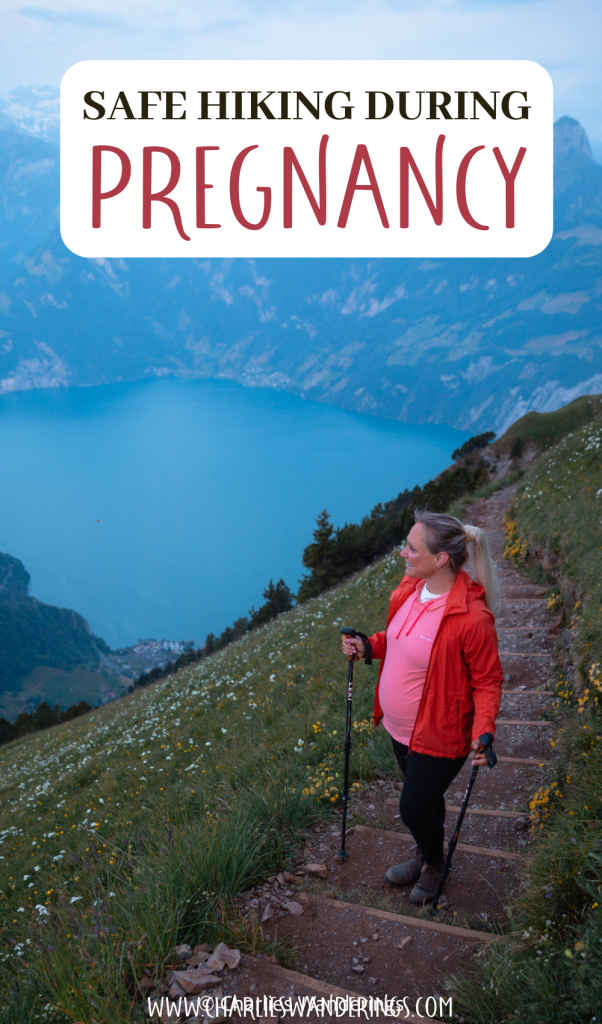Embarking on a hiking adventure can be a fantastic way to stay active and enjoy the outdoors, but when you’re expecting, it’s natural to wonder about the safety of such activities. Hiking during pregnancy can offer numerous benefits, from improved cardiovascular health to stress reduction, but it’s crucial to approach it with caution and awareness. This guide provides a comprehensive overview of hiking during pregnancy, covering safety considerations, potential risks, and practical tips to ensure a safe and enjoyable experience for both you and your baby. Always consult with your healthcare provider before starting or continuing any exercise program during pregnancy.
Benefits of Hiking While Pregnant
Staying active during pregnancy is generally encouraged, and hiking can be a great way to do so, provided it’s done safely and with your doctor’s approval. Here are some potential benefits:
- Improved Cardiovascular Health: Hiking can help maintain a healthy heart and circulatory system.
- Weight Management: Regular physical activity can assist in managing weight gain during pregnancy.
- Stress Reduction: Spending time in nature can be incredibly relaxing and help reduce stress levels.
- Improved Mood: Exercise releases endorphins, which can boost your mood and combat feelings of anxiety or depression.
- Stronger Muscles: Hiking strengthens leg muscles, which can be beneficial during labor and delivery.
Safety Considerations and Potential Risks
While hiking offers benefits, it’s essential to be aware of the potential risks and take necessary precautions:
- Risk of Falls: Pregnancy can affect your balance, increasing the risk of falls, especially on uneven terrain.
- Dehydration: Pregnant women are more susceptible to dehydration, which can lead to complications.
- Overexertion: Pushing yourself too hard can be detrimental to both you and your baby.
- Altitude Sickness: Hiking at high altitudes can pose risks, especially for those not acclimatized.
- Changes in Body: As your pregnancy progresses, your center of gravity shifts, impacting balance and coordination.
Tips for Safe Hiking During Pregnancy
To minimize risks and maximize enjoyment, follow these tips:
- Consult Your Doctor: Always get clearance from your healthcare provider before hiking.
- Choose Appropriate Trails: Opt for well-maintained, relatively flat trails with minimal obstacles.
- Hike with a Companion: Never hike alone, especially in remote areas.
- Stay Hydrated: Drink plenty of water before, during, and after your hike.
- Wear Appropriate Gear: Wear supportive shoes, comfortable clothing, and sunscreen.
- Listen to Your Body: Take frequent breaks and stop if you feel tired, dizzy, or experience any discomfort.
- Avoid High Altitudes: If possible, stick to lower elevations to avoid altitude sickness.
- Pack Snacks: Bring healthy snacks to maintain energy levels.
- Be Aware of Weather Conditions: Check the weather forecast before you go and be prepared for changes.
- Consider Your Trimester: Hiking may be more comfortable during the second trimester than the first or third.
Choosing the Right Trail
Selecting the right trail is paramount for a safe and enjoyable hiking experience during pregnancy. Look for trails that are:
- Well-maintained: Avoid trails with loose rocks, steep inclines, or overgrown vegetation.
- Relatively flat: Opt for trails with minimal elevation gain to reduce strain on your body.
- Short in length: Start with shorter hikes and gradually increase the distance as you feel comfortable.
- Easily accessible: Choose trails that are close to civilization in case of an emergency.
Factoid: Did you know that spending time in nature can lower your blood pressure and boost your immune system? This is especially beneficial during pregnancy!
Adjusting Your Hiking Style
As your pregnancy progresses, you may need to adjust your hiking style to accommodate your changing body:
- Reduce your pace: Slow down and take your time.
- Shorten your stride: This can help improve your balance.
- Use hiking poles: Poles can provide extra stability and support.
- Take more frequent breaks: Rest often and listen to your body’s signals.
Factoid: Many pregnant women find that hiking is a great way to prepare for labor and delivery, as it helps strengthen leg muscles and improves endurance.
FAQ: Hiking During Pregnancy
Q: Is hiking safe during my first trimester?
A: Generally, yes, but consult with your doctor first. Morning sickness and fatigue may limit your ability to hike comfortably.
Q: How much water should I drink while hiking during pregnancy?
A: Drink plenty of water – more than you normally would. Aim for at least 8-10 glasses of water throughout the day, and more if you’re sweating.
Q: What should I do if I experience pain or discomfort while hiking?
A: Stop immediately and rest. If the pain persists, contact your doctor.
Q: Can I hike at high altitudes during pregnancy?
A: It’s generally not recommended, especially if you’re not acclimatized. High altitudes can reduce oxygen levels, which can be harmful to both you and your baby. Always consult your doctor before hiking at high altitudes.
Q: What kind of snacks should I bring on a hike during pregnancy?
A: Choose healthy, energy-boosting snacks like fruits, nuts, granola bars, or trail mix.

